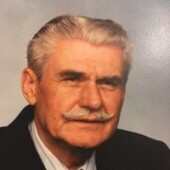

Raymond Edward Ryckman, Phd.
June 19, 1917 — July 18, 2016
Raymond E. Ryckman, PhD, June 19, 1917—July 8, 2016.
Dr. Raymond E. Ryckman, with top-secret government clearance, conducted U.S. Army, grant-funded, original research to determine plague vector controls in the 1950s at the School of Tropical and Preventive Medicine, the forerunner of the Loma Linda University School of Public Health. Dr. Ryckman’s research determined how to protect military troops from plague in plague-infested parts of the world. His research resulted in the United States Army’s flea control program in Viet Nam. These School of Tropical and Preventive Medicine studies played a significant role in the prevention of plague outbreak during the Vietnam War.
But, Professor Ryckman is best known throughout the Americas for his contributions in the field of Chagas’ disease from the vector Triatoma (bloodsuckers, also known as “Kissing Bugs”). According to the World Health Organization, he stands a full head and shoulders above the rest as the foremost respected and accomplished North American entomologist in the field of Chagas’ disease, an illness affecting an estimated 15 million people in Central and South America and 100,000 in the United States. According to Dr. Ryckman, other than insecticide prevention, there is no suitable therapeutic agent for the control of Chagas’ disease.
Dr Ryckman was reared on a farm in rural southern Wisconsin. He was fascinated at an early age by insects. He attended the Seventh-day Adventist Academy in Iowa, and was drafted into the United States Army when he was 24. He served four years at a hospital at the Presidio Army Base in San Francisco. During this time, he met and married Evelyn Larson. After earning an Associate of Arts degree from San Francisco City College, Ryckman started his career in 1948 at the University of California, Berkley, as a student of Dr. Robert L. Usinger, who is known as the greatest United States Hemipterist in the field of medical entomology.
Ryckman earned a B. S. degree in zoology from the University of California, Berkeley, in 1950. He completed his Master’s thesis on the Cimicidae (bed bugs) in 1957 and continued under Dr. Usinger’s mentoring for his doctoral degree from the University of California, Berkeley, in 1960, which focused on Triatomine vectors of Chagas’ disease in Western North America. Professor Ryckman’s PhD thesis entitled, “Biosystematics and hosts of the Triatoma protracta complex in North America” is still looked upon as one of the most thorough and critical studies on the ecology and development of a group of ectoparasitic arthropods and their hosts ever completed.
Ryckman authored or co-authored a publication legacy of 120 publications, an impressive output for a time before computers and internet submissions. Ryckman credits his wife with carefully and patiently reviewing and editing his manuscripts before submission. His papers are a rich library of information about every aspect of Triatomine and mammalian hosts of T. cruzi.
Professor Ryckman continued his work, providing in his retirement consultation, advice, and even an occasional guided field trip for scientists and public health workers from the Americas, who still today appreciate the importance of his contributions.
In addition to the invaluable entomological collections that he established, Dr. Ryckman’s collection of Chagas’ disease references is perhaps the greatest single reference database ever established for an arthropod-born disease, certainly in the pre-computer age. In a series of volumes published in the Bulletin of the Society of Vector Ecologists from 1981 to 1987 (vols. 6, 9, and 12), Professor Ryckman, with the assistance of several of his students, compiled over 23,000 references in Spanish, French, Portuguese, and English, on Chagas’ disease, covering the biology, pathology, ecology, and entomology, representing a complete collection of articles published on the topic, up until the last publication date in 1987. It is considered to be a treasure for generations of researchers to come. This database has now been digitized and is in the process of being prepared for online access.
In 1972, Ryckman was honored with a patronym: Triatoma ryckmani, a rare species that has been found only a few times in Central America. In 2007, he received the Distinguished Achievement Award from the Society for Vector Ecology by the Centers for Disease Control and Prevention in Atlanta, Georgia.
Dr. Ryckman chaired the Loma Linda University School of Medicine Department of Microbiology from 1980 to 1987.
In 1998, Dr. Ryckman co-authored a book detailing the life of Edmund C. Jaeger, a biologist well-known for his studies of the ecology of the desert of the southwestern United States. In 2008, he received the University Distinguished Service Award, the highest honor awarded by Loma Linda University.
An authority on the ecology of Triatomines and Chagas’ disease, a patient teacher, an international scholar, and family man, Dr. Ryckman died on July 18. He is survived by his wife, Evelyn, his three children, Joseph, Albert, and Ruby, and multiple grandchildren and great grandchildren.
Service Schedule
Past Services
Viewing
Monday, July 25, 2016
Emmerson Bartlett Memorial Chapel
Graveside
Tuesday, July 26, 2016
Montecito Memorial Park
Photo Gallery
Guestbook
Visits: 9
This site is protected by reCAPTCHA and the
Google Privacy Policy and Terms of Service apply.
Service map data © OpenStreetMap contributors



